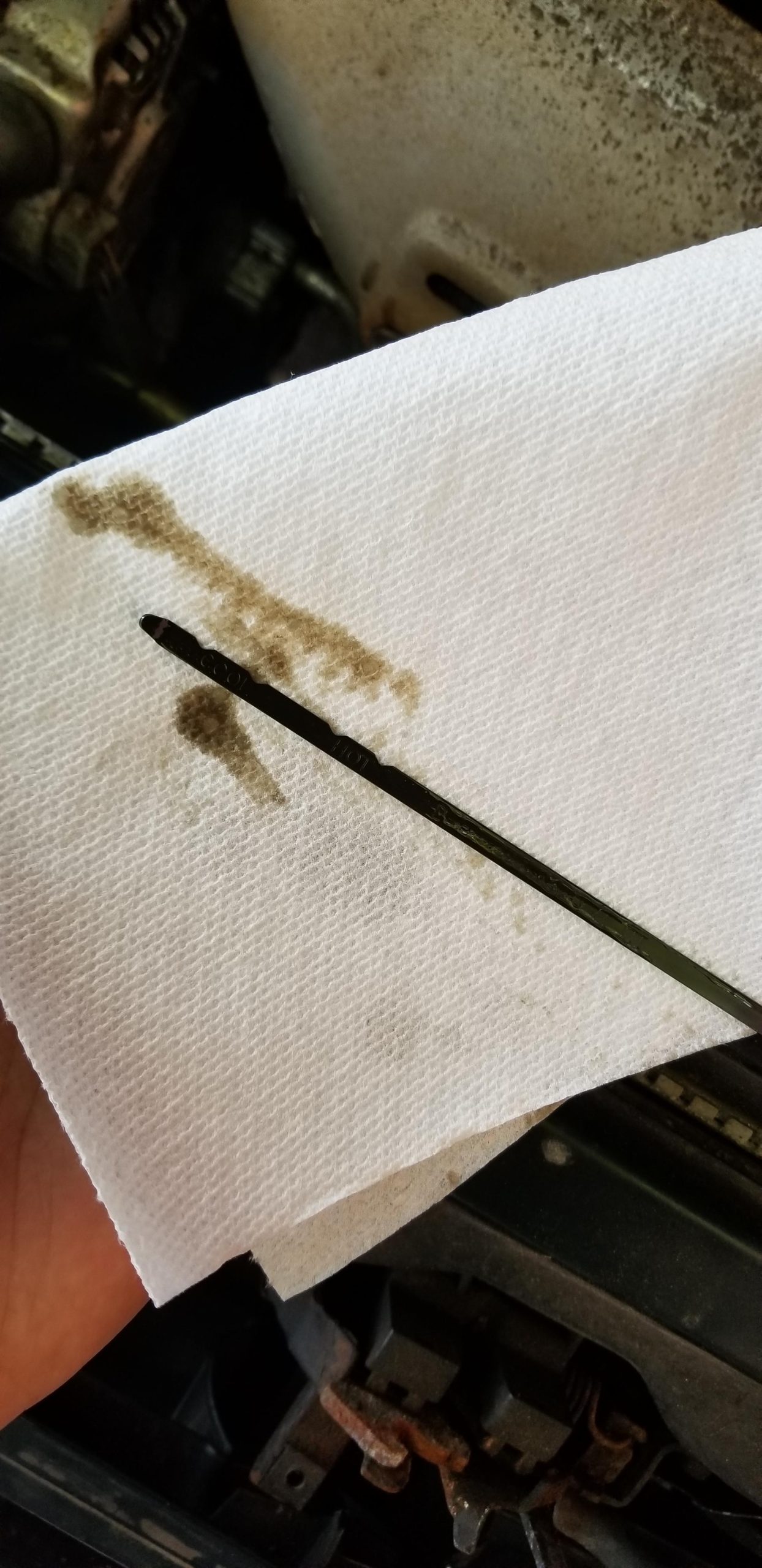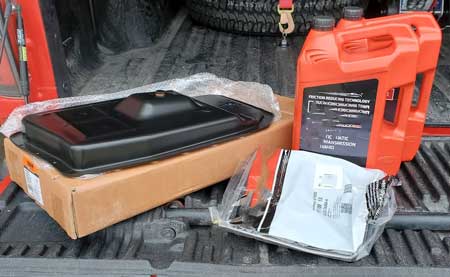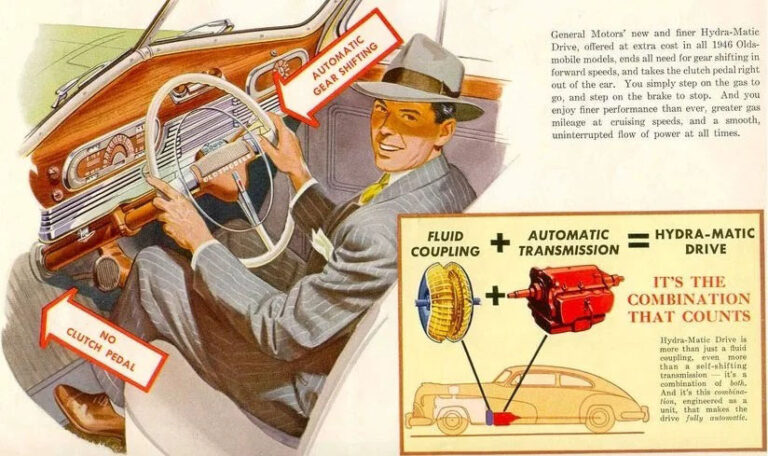What Does Burnt Transmission Fluid Smell Like? Discover It Here!

Burnt transmission fluid has a distinct, unpleasant odor. The smell of burnt transmission fluid is a strong, pungent odor that cannot be mistaken for anything else.
It is an indication of a problem with a vehicle’s transmission system and should not be ignored. The transmission system is an essential component in any automobile, responsible for delivering power from the engine to the wheels and regulating the speed of the car.
Transmission fluid is necessary for lubricating the gears and keeping the transmission cool. Over time, this fluid can become contaminated, leading to problems such as overheating, poor performance, and even failure. Burnt transmission fluid is a sign that the transmission is in distress and requires immediate attention from a qualified technician. Ignoring this issue could result in costly repairs or even a complete transmission replacement.

What Causes Burnt Transmission Fluid Smell
If you’ve ever experienced a burnt smell coming from your car, you know how concerning it can be. One of the potential causes could be burnt transmission fluid, which is a clear indication that there may be a problem with your transmission system.
We’ll explore the common reasons behind burnt transmission fluid smell, along with a brief explanation of each cause.
Read More About: JWS 3309 Transmission Fluid Equivalent
Overheating Of The Transmission System
Overheating of the transmission system is one of the primary reasons that leads to burnt transmission fluid smell. The transmission system is composed of various components, including a torque converter, clutch packs, and gears. When these components function at high temperatures for a prolonged period, they can cause the transmission fluid to burn, releasing an unpleasant odor.
Some of the causes of transmission overheating include:
- Driving in hot weather conditions
- Towing a heavy load
- Repeatedly stopping and starting, such as in a traffic jam
Aging Transmission Fluid
Transmission fluid has a lifespan and can deteriorate over time. Suppose it’s not changed regularly, the fluid loses its viscosity and lubrication properties, making it challenging for the system to work correctly. As the transmission fluid ages, it becomes more prone to breaking down, which leads to an unpleasant smell.
Here are some reasons for aging transmission fluid:
- Not changing transmission fluid regularly
- Covering long distances
- Extreme driving conditions
Lack Of Maintenance
Lack of maintenance is a frequent cause of burnt transmission fluid smell. The transmission system needs regular cleaning, including a change of the transmission fluid and filter to ensure that it’s in the best working condition.
Some of the reasons for lack of maintenance include:
- Neglecting to follow the manufacturer’s recommended maintenance schedule
- Lack of knowledge regarding car maintenance
- Not taking the vehicle to a professional mechanic
Mechanical Problems
Mechanical issues with the transmission system can cause burnt transmission fluid smell. Transmission systems are intricate, and any misaligned or broken component can lead to significant problems. Here are some of the mechanical problems that can cause a burnt smell:
- Broken gearbox
- Clogged filter
- Damaged torque converter
A burnt transmission fluid smell is a sign that your car’s transmission system has a problem. The reasons can vary, from lack of maintenance to mechanical problems. Suppose you experience the burnt smell for an extended period.
Also Read: Allison C3 Transmission Fluid Equivalent
Identifying Burnt Transmission Fluid Smell
Have you ever noticed a burning smell in your car and wondered what it could be? One possible culprit could be your transmission fluid. Your vehicle’s transmission fluid is essential to keep things running smoothly, but when it starts to burn, it can cause problems that are both expensive and dangerous.
We will explore the different characteristics of burnt transmission fluid smell, distinguish it from other odors, and discover ways to detect it in different situations.
Characteristics Of Burnt Transmission Fluid Smell
When transmission fluid gets too hot, it begins to burn, changing its composition and giving off a distinctive odor. Here are some characteristics of burnt transmission fluid smell:
- Foul, acrid odor resembling burnt toast or burnt popcorn
- Another scent to compare it to is the smell of burning rubber
- Often smells like something is burning under the hood of your car
- May also smell sweet or sour, like rotting fruit or vinegar
Distinguishing Burnt Transmission Fluid Smell From Other Odors
Burnt transmission fluid smell is not the only potential odor you may notice in your car. Here are some tips to distinguish it from other odors:
- If the smell seems to come from the front of the car and is accompanied by smoke or steam, it may be an overheating engine.
- If the scent is sweet and accompanied by a sticky substance under your car, it may be coolant burning.
- If the smell is musty, damp, or similar to dirty socks, it may be coming from a buildup of mold and bacteria in your car’s air conditioning system.
- If the odor is a foul, rotten egg stench, it indicates a problem with the catalytic converter, which may need immediate attention.
Detecting Burnt Transmission Fluid Smell In Different Situations
Detecting burnt transmission fluid smell is only half the battle. The next step is to identify where and when you detect the odor. Here are some tips for detecting burnt transmission fluid smell in different situations:
- While driving: If you notice the smell while driving, it may be that the transmission is getting too hot and producing the characteristic odor. Pull over immediately and check your transmission fluid level.
- After parking: If the odor is only noticeable after you park your car, look for signs of leakage under the vehicle. A visible stain on the ground can help you determine the location of the issue.
- While changing gears: If you notice the smell while shifting gears, this could indicate slipping gears, low fluid, or even a malfunctioning transmission.
Burnt transmission fluid smell is a clear indication of a potential problem with your vehicle. Knowing how to detect it and distinguish it from other odors can help you act quickly if necessary. If you detect the odor, it is essential to have your vehicle inspected by a professional mechanic as soon as possible to prevent further damage.
Also Read: Type WS Transmission Fluid Equivalent ATF
Risks Of Driving With Burnt Transmission Fluid
What Does Burnt Transmission Fluid Smell Like? Discover It Here!
If you’re wondering how to identify burnt transmission fluid, it’s essential to understand the smell. Burnt transmission fluid reeks, and if you can smell a burnt odor coming from your vehicle, it may indicate that the transmission fluid is burnt.
Although the idea of changing out your transmission fluid may seem like a hassle, don’t underestimate the power of maintaining your vehicle. Driving with burnt transmission fluid can lead to several risks, including increased repair costs, further damage to the transmission system, and an increased risk of accidents.
Further Damage To The Transmission System
Driving with burnt transmission fluid leads to several problems. The burnt fluid can cause more issues for your transmission system as it struggles to function in sub-optimal conditions. Transmission fluid is responsible for keeping components lubricated and preventing overheating. If you continue to operate your vehicle with burnt transmission fluid, you risk further damage to the transmission system, leading to costly repairs or possibly replacing the entire component.
Increased Risk Of Accidents
Driving with burnt transmission fluid can cause erratic shifting and slipping, leading to an increased risk of accidents. The transmission system helps control the vehicle’s power to the wheels, and a faulty transmission system can make it difficult to move your vehicle.
If you notice issues with your transmission, such as delayed shifting, hard shifting, or slipping gears, check the transmission fluid level or take it to a mechanic. Neglecting these issues could cause an accident.
Increased Repair Costs
Repairing a transmission system can be costly, and if you drive with burnt transmission fluid, it can increase repair costs. Transmission fluid prevents metal parts from grinding against each other, reducing friction and overheating. If you continue to operate your vehicle with burnt transmission fluid, the heat generated can cause damage to your transmission system’s internal components, leading to more expensive repairs.
It’s crucial to pay attention to your vehicle’s smells, including burnt transmission fluid. Driving with burnt transmission fluid puts your safety at risk and can lead to expensive repair bills. If you notice a strange odor coming from your vehicle or have any transmission issues, take it to a mechanic as soon as possible.
By maintaining your vehicle, you can save money in the long run and ensure driving safety.
How To Prevent Burnt Transmission Fluid Smell
What Does Burnt Transmission Fluid Smell Like? Discover It Here!
Transmission fluid is a crucial element in keeping your vehicle running smoothly. It acts as a lubricant for the transmission system, ensuring that all gears and components are working correctly. However, when the transmission fluid starts to burn, it can create an unpleasant odor, causing potential issues with your vehicle’s functioning.
Let’s delve into the topic further and find out how to prevent burnt transmission fluid smell.
Regularly Checking Transmission Fluid Level And Quality
Regularly checking your transmission fluid level and quality is essential in preventing burnt transmission fluid smell and other potential transmission problems. Here’s what you need to keep in mind:
- Make sure the fluid level is always above the ‘minimum’ mark on the dipstick.
- Check the color of the transmission fluid. It should be bright red or pink. If you notice it has a darker, brownish color, it’s an indication of burnt fluid and should be addressed immediately.
- Inspect the texture of the fluid. Healthy transmission fluid should be smooth, with no grittiness or debris.
Changing Transmission Fluid As Per Manufacturer’S Recommendation
It’s essential to change your transmission fluid as per the manufacturer’s recommendation to minimize the risk of burnt transmission fluid smell. Most manufacturers recommend changing the fluid between 30,000 to 60,000 miles, but always consult your vehicle’s owner’s manual for specific instructions.
Here are some vital points to note when considering a transmission fluid change:
- Use the recommended type of fluid by your manufacturer.
- Changing the fluid requires trained technicians, and thus, it’s best to visit a reputable repair facility to complete the job.
- A flush may be required if your transmission system is contaminated or damaged.
Ensuring Proper Cooling System In Place
Your transmission system generates heat, and it’s crucial to have a cooling system in place to prevent overheating. Overheating can cause severe damage to your transmission, including burnt transmission fluid smell. Here’s what you should keep in mind:
- Ensure the proper functioning of the radiator, cooling fan, and other system components.
- Deteriorating cooling systems require immediate attention to prevent significant damage.
Regular Servicing And Maintenance Of The Transmission System
Regular servicing and maintenance of the transmission system is essential to keep your vehicle running at optimal levels and to prevent burnt transmission fluid smell. Here’s what you need to know:
- At the time of servicing, ensure that the technician inspects the transmission system for leaks, worn components, and worn-out gaskets.
- Replace any damaged, worn-out parts immediately to prevent the transmission system from failing.
- Follow the manufacturer’s recommendation regarding the use of additives or treatments. Some treatments can cause more damage than not using them at all.
Preventing burnt transmission fluid smell requires regular maintenance of your vehicle’s transmission system. Proper fluid level checks, changing the fluid as required, ensuring proper cooling systems, and regular servicing and maintenance can keep your vehicle running smoothly and free from transmission issues.
Frequently Asked Questions Of What Does Burnt Transmission Fluid Smell Like
What Causes Burnt Transmission Fluid Smell?
Burnt transmission fluid smell can be caused by high heat, low fluid level, and worn out components. Overheating of transmission fluid due to towing or racing can also cause the burnt smell.
Is It Safe To Drive With Burnt Transmission Fluid?
No, it is not safe to drive with burnt transmission fluid. Overheating of transmission fluid can damage the transmission system which leads to costly repairs. If you smell burnt transmission fluid, it is recommended that you get your vehicle checked asap.
How Often Should You Check Your Transmission Fluid?
You should check your transmission fluid level every month to ensure it is at the recommended level. If there is a leak, you should get it checked immediately and top up the fluid.
Can A Transmission Flush Help To Remove The Burnt Smell?
Yes, a transmission flush can help to remove the burnt smell. It involves draining the old fluid and replacing it with fresh fluid. A flush can also help in prolonging the lifespan of your transmission.
What Type Of Transmission Fluid Is Best?
The type of transmission fluid that is best for your vehicle depends on the manufacturer’s recommendations. It is recommended that you consult the owner’s manual for the type of fluid that is best for your car.
Conclusion
After learning about the distinct aroma of burnt transmission fluid, it is imperative to get any potential issues diagnosed and fixed by a qualified mechanic. Not only can driving with burnt transmission fluid cause damage to your vehicle, it can also be dangerous for you and other drivers on the road.
Regularly checking your transmission fluid and addressing any concerns can prevent further damage and costly repairs. If you detect a smell of burnt transmission fluid, it is important to act swiftly and seek professional help to ensure the longevity and safety of your vehicle.






